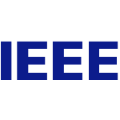We propose a new method for improving zero-shot ObjectNav that aims to utilize potentially available environmental percepts for navigational assistance. Our approach takes into account that the ground agent may have limited and sometimes obstructed view. Our formulation encourages Generative Communication (GC) between an assistive overhead agent with a global view containing the target object and the ground agent with an obfuscated view; both equipped with Vision-Language Models (VLMs) for vision-to-language translation. In this assisted setup, the embodied agents communicate environmental information before the ground agent executes actions towards a target. Despite the overhead agent having a global view with the target, we note a drop in performance (-13% in OSR and -13% in SPL) of a fully cooperative assistance scheme over an unassisted baseline. In contrast, a selective assistance scheme where the ground agent retains its independent exploratory behaviour shows a 10% OSR and 7.65% SPL improvement. To explain navigation performance, we analyze the GC for unique traits, quantifying the presence of hallucination and cooperation. Specifically, we identify the novel linguistic trait of preemptive hallucination in our embodied setting, where the overhead agent assumes that the ground agent has executed an action in the dialogue when it is yet to move, and note its strong correlation with navigation performance. We conduct real-world experiments and present some qualitative examples where we mitigate hallucinations via prompt finetuning to improve ObjectNav performance.
翻译:暂无翻译




